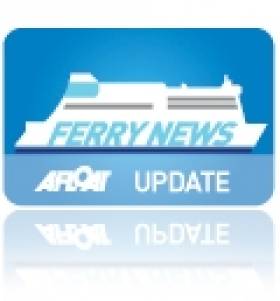Displaying items by tag: Irish Sea ferry disruption
Severe Weather Disrupts Ferry Services
#FERRY NEWS – With travel disruption to some Irish Sea ferry services due to the severe weather conditions battering across the country, the following ferry operator's website links below provide the latest sailing schedules and contact details.
It is also advisable to contact the ferry operator to inquire about the port check-in time prior to setting off. For further information click over each of the route as highlighted below.
In addition to keep abreast of weather warning updates click www.met.ie/ and www.metoffice.gov.uk/
IRISH FERRIES
Central Reservations Tel: 0818 300 400 OR
Rosslare Tel: (053) 9133158
Rosslare-Cherbourg: Sailings have been temporarily suspended due to annual dry-docking of the cruiseferry Oscar Wilde. Sailings resume with the first departure in 2012 from Rosslare on 19th February and the corresponding return sailing from Cherbourg is scheduled for 21st February. For timetable click HERE.
STENA LINE
Tel: (01) 204 77 99 when travelling to Britain OR
Tel: 00 44 (0) 8705 755 755 when travelling to Ireland or Scotland.
Dun Laoghaire-Holyhead Note: the high-speed (HSS) route remains suspended until April or May 2012.
Belfast-Liverpool (Birkenhead)
P&O Ferries
Tel: 00 353 (0)1 407 3434
Larne-Troon. Note: the 'Express' fast-ferry craft operated route is due to re-open in March 2012.
KINTYRE EXPRESS
Tel: 00 44 1586 555 895
Note: FOOT-PASSENGER ONLY fast-RIB craft service which is currently operating to a winter service (October 2011-April 2012) which runs only on Friday's and Monday's.
CELTIC LINK FERRIES
Tel: (053) 916 2688
FASTNET LINE
Tel: (021) 437 8892 OR UK 00 44 (0) 844 576 8831
Note: The Celtic Sea route is due to re-open on 6th April 2012 with a sailing from Swansea.
























































